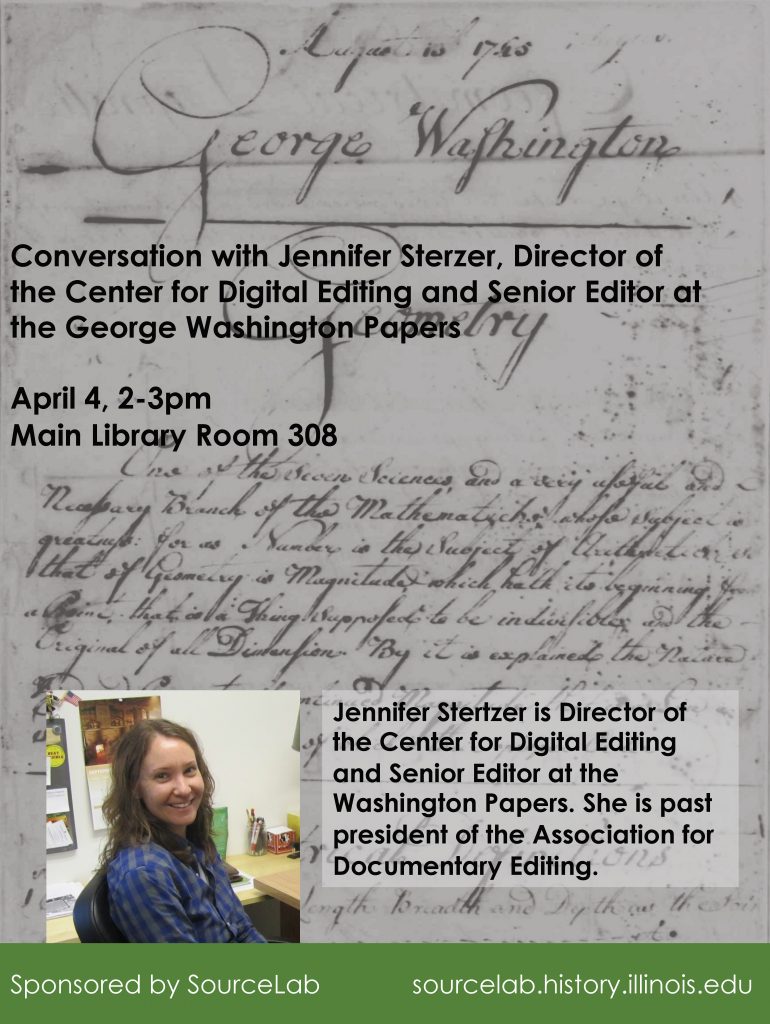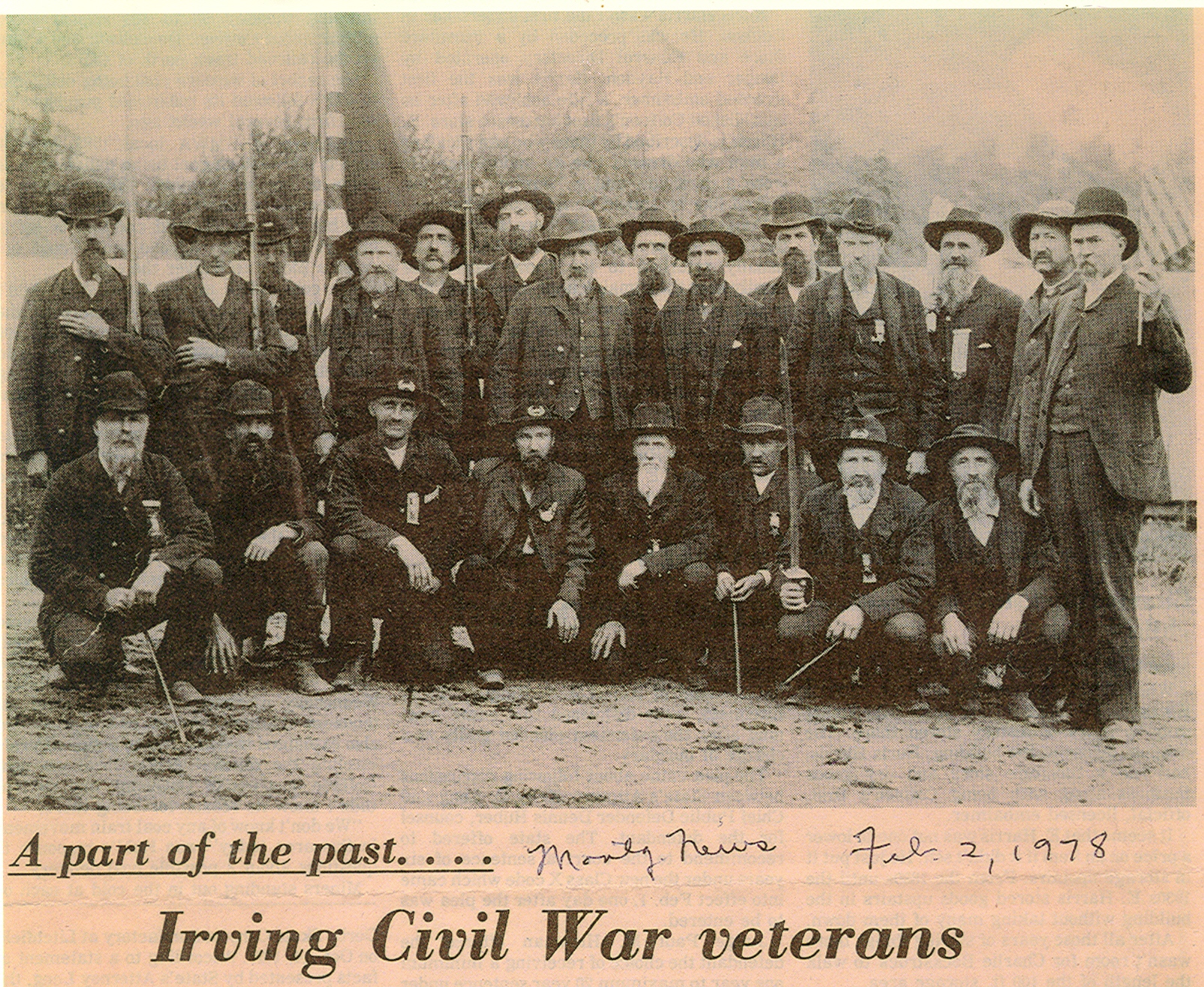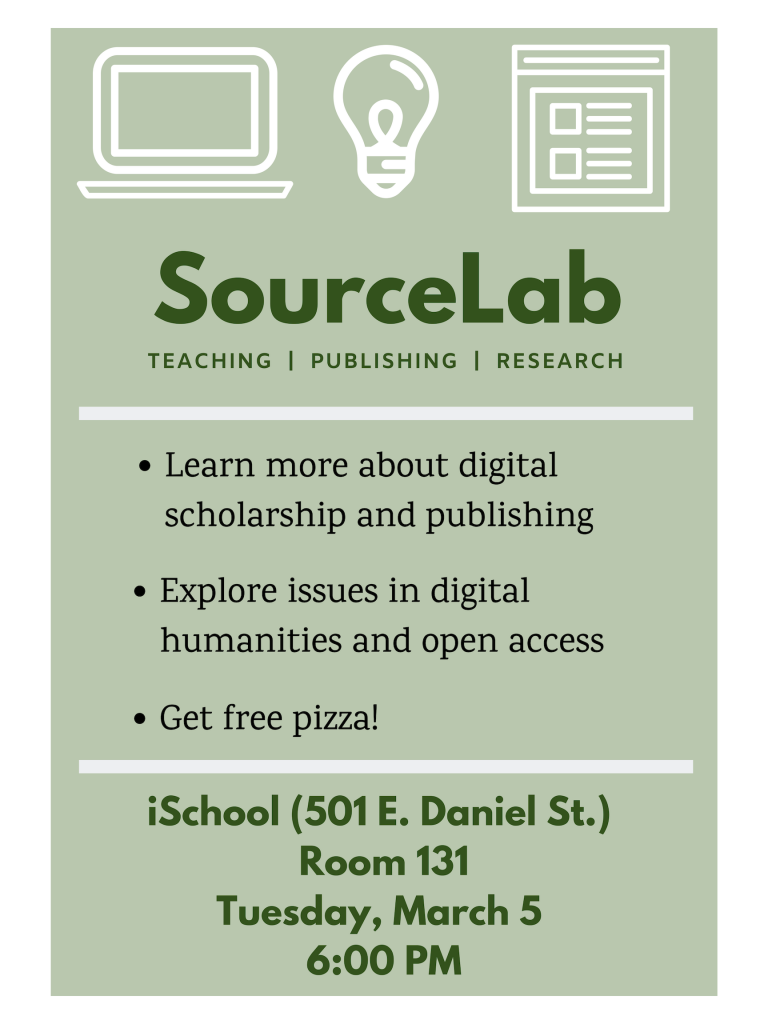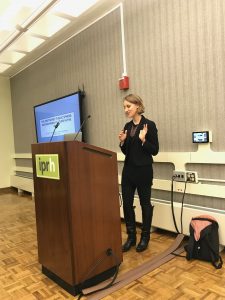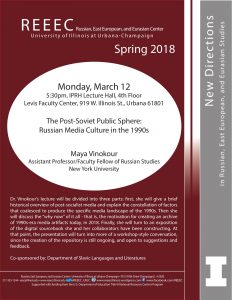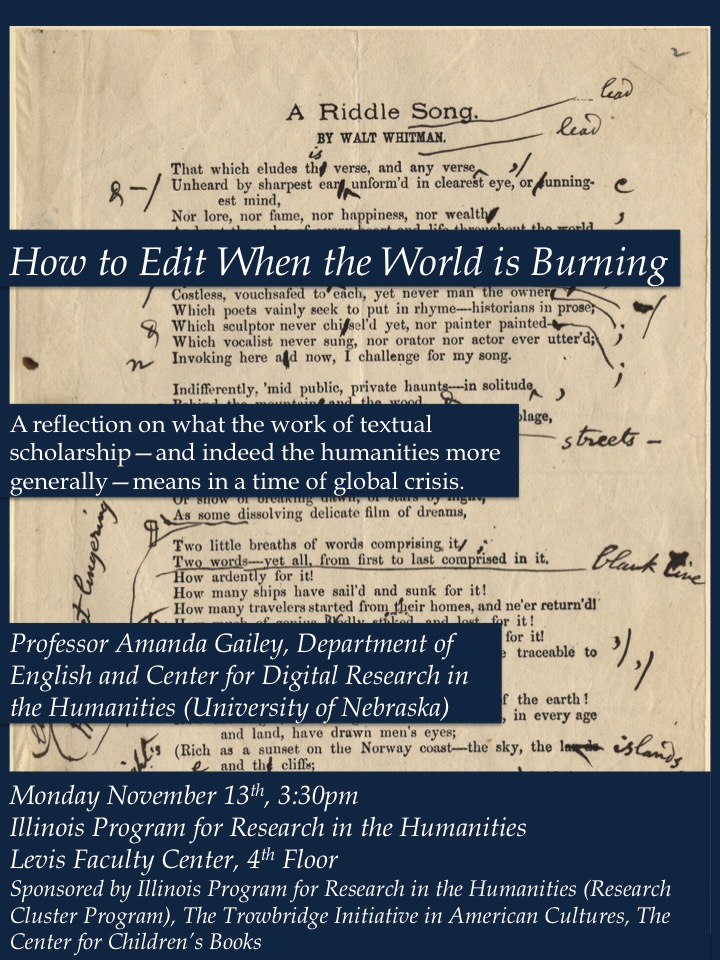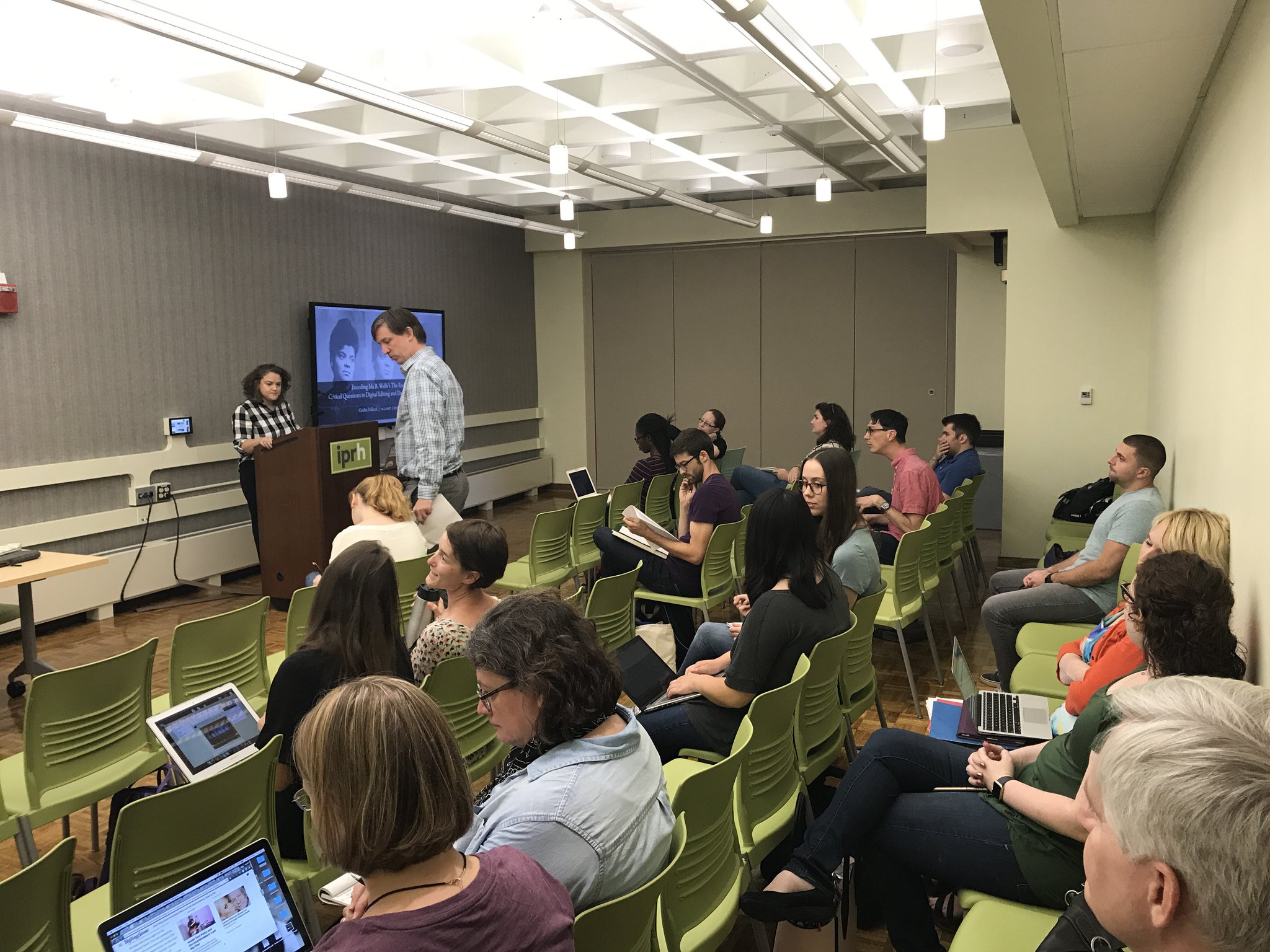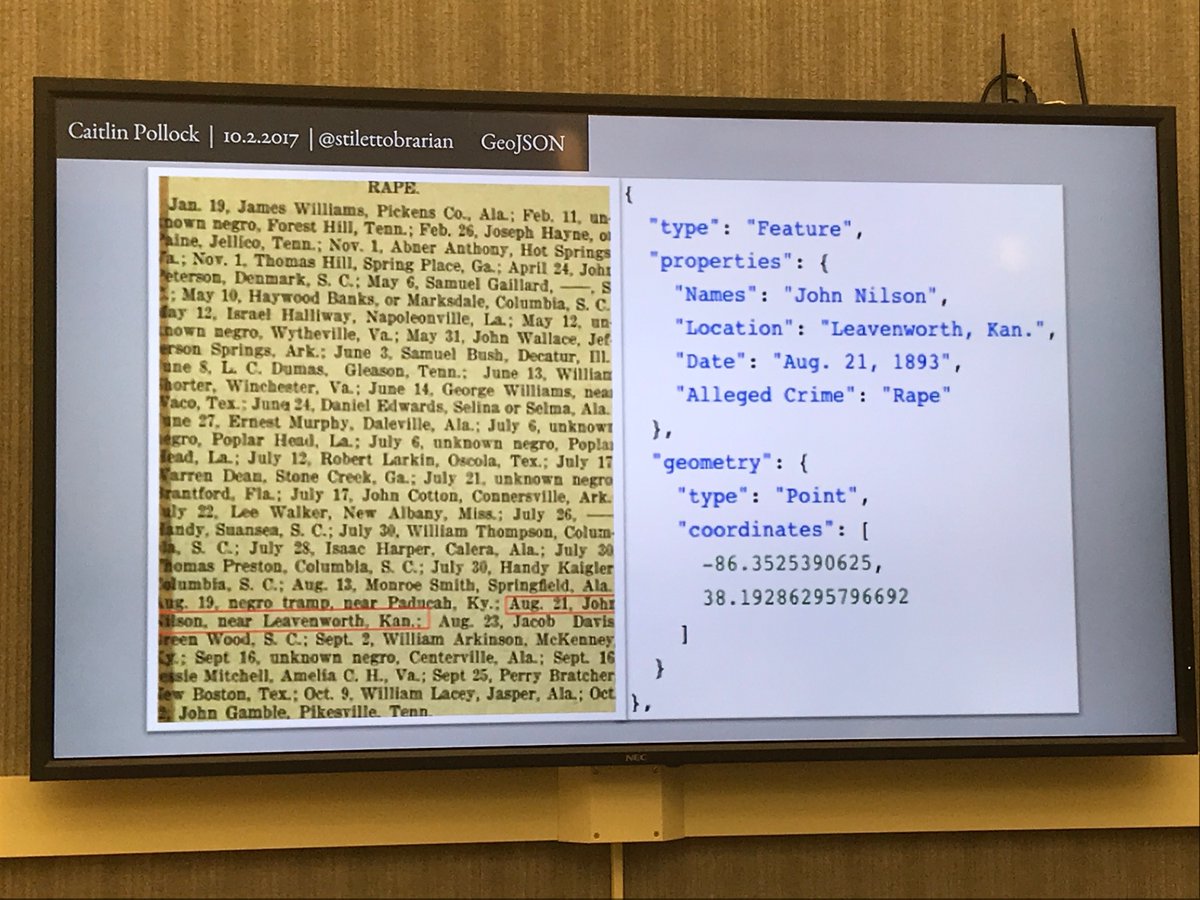Monday October 2nd, 3:30-5 pm (IPRH Seminar Room)
SourceLab Forum will be welcoming Caitlin Pollock, Digital Humanities Librarian at the Center for Digital Scholarship at IUPUI, for a workshop talk entitled “Encoding Ida B. Wells’s The Red Record: Critical Questions in Digital Editing and Data Curation of Violence.”
Published in 1895, Ida B. Wells’s The Red Record documents the history and practice of lynching in American life, combining graphic accounts of violence against African Americans with statistics, carefully culled from published sources, demonstrating its prevalence. In her talk, Caitlin Pollock will consider whether benchmark standards for the creation of electronic editions–such as the Text Encoding Initiative–allow for such a history to be translated into the digital record fully and fairly. Her talk will engage current, critical literature on race studies within the Digital Humanities, as well as the evolution of digital editing within and beyond TEI.
The talk will have an open workshop format, with initial remarks followed by a direct engagement with encoding this text. (Though no photographic images will be shown, The Red Record contains graphic discussion of racist violence, that will be analyzed as part of the presentation.)
Caitlin has also provided us with a few recommended readings, that might help set the context for the discussion, listed below (though no advanced preparation is required).
Gallon, Kim. “Making a Case for the Black Digital Humanities.” In Debates in the Digital Humanities, edited by Matthew K. Gold, 2016. http://dhdebates.gc.cuny.edu/debates/text/55
Palmer, Carole L., Nicholas M. Weber, Trevor M. Muñoz, and Allen H. Renear. “Foundations of Data Curation: The Pedagogy and Practice of ‘Purposeful Work’ with Research Data – Archive Journal.” Accessed August 25, 2017. http://dev.archivejournal.net/?p=4819.
Wells-Barnett, Ida Bell. On Lynchings. Black Thought and Culture. New York: Humanity Press, 2013. http://solomon.bltc.alexanderstreet.com/cgi-bin/asp/philo/bltc/getvolume.pl?S10224 (The Red Record is reproduced in this electronic edition, which also presents an example of how the text is currently digitized).
We hope you can join us for the session.
